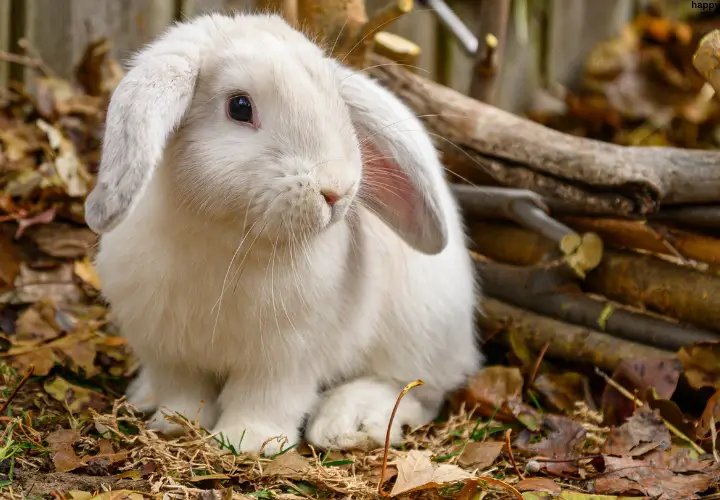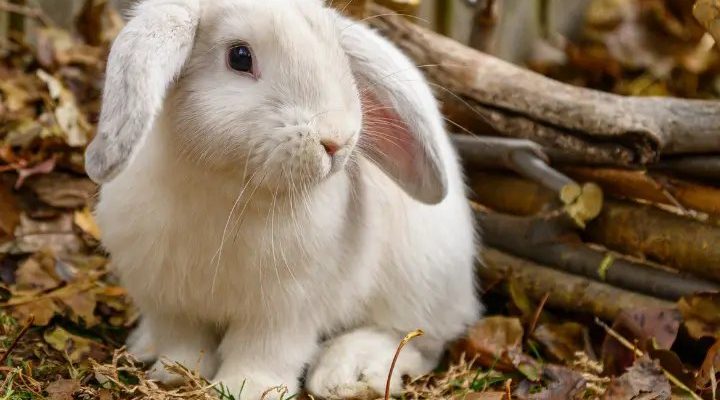
Now, think of it this way: if you were raising a kid, you’d want to know about common childhood illnesses to keep them safe. The same goes for your Holland Lop. You want to be prepared and informed so you can provide the best care possible. Let’s dive into some common health problems these adorable bunnies can face and explore how to keep them hopping happily along!
Dental Problems
One of the most common health issues in Holland Lops is dental problems. Their teeth grow continuously, which is great for munching on hay but can lead to overgrown teeth if they’re not kept in check. Imagine trying to eat with no way to keep your teeth worn down—yikes!
Signs of dental issues include slobbering, difficulty eating, or even refusing food. If your bunny seems to be chomping on their favorite treats less enthusiastically, it might be time to check their teeth. Regularly offering hay and safe chew toys can help keep their teeth trimmed and healthy. Plus, a nice salad of leafy greens can encourage chewing, which further helps keep those teeth in shape.
To really keep dental problems at bay, regular vet check-ups are essential. A veterinarian can examine your Holland Lop’s teeth and provide professional advice on diet and dental care. This proactive approach can save your pet from pain and discomfort.
Obesity
Obesity in rabbits is more common than you might think, and Holland Lops are no exception. These little buddies love their treats, but too many can lead them down a slippery slope to health issues. Picture a little rabbit with a wiggly belly trying to hop around—it just doesn’t look right, does it?
To prevent obesity, focus on a balanced diet. The majority of a Holland Lop’s diet should be hay, while fresh vegetables can serve as delightful snacks. It’s best to limit high-calorie treats and monitor portion sizes. A good rule of thumb is to offer about one cup of veggies per 2 pounds of bunny weight daily. This helps keep their weight in check while providing essential nutrients.
Regular exercise is also crucial. Encourage your bunny to hop around and explore safely outside their cage. You might use toys or tunnels to stimulate their natural curiosity and get them moving. Keeping your Holland Lop active not only helps prevent obesity but also keeps them mentally stimulated.
Gastrointestinal Stasis
Gastrointestinal stasis, or “GI stasis,” is a serious condition that can strike rabbits, including Holland Lops. Think of it as a traffic jam in their tummy—it’s not good for anyone involved. This condition occurs when a rabbit’s digestive system slows down or stops, leading to a buildup of gas and discomfort.
Some signs of GI stasis are reduced or no appetite, lethargy, and a bloated abdomen. If you notice these symptoms, don’t wait around; contact your vet immediately. The sooner your rabbit gets help, the better.
To prevent GI stasis, make sure your Holland Lop has a steady supply of fresh hay and plenty of water. A diet rich in fiber keeps their digestive system moving smoothly. You can also introduce safe greens gradually, as too many new foods at once can upset their stomach. Keep an eye on their eating habits and provide a stress-free environment, as stress can contribute to digestion problems.
Respiratory Issues
Holland Lops are at risk of developing respiratory issues, which can be quite serious. Imagine trying to breathe through a stuffy nose—that’s how your rabbit might feel if they develop a respiratory infection. Signs include sneezing, coughing, or nasal discharge. If your bunny seems congested or is making unusual noises, it’s time to consult your vet.
To help prevent respiratory problems, keep your rabbit’s living area clean and free from dust, mold, or strong odors. These irritants can contribute to respiratory distress. Also, avoid exposing them to cold drafts and extreme temperatures, as rabbits can be sensitive to environmental changes.
Regular check-ups with the vet can also help catch any developing issues early. They can provide you with specific advice tailored to your rabbit’s needs. Remember, a healthy bunny is a happy bunny!
Ear Infections
Ear infections can also occur in Holland Lops, particularly due to their floppy ears. These adorable ears keep warmth in, but they can also hold moisture and dirt, creating the perfect environment for bacteria or yeast to grow. It’s like a cozy little breeding ground for problems!
Watch for signs such as head shaking, scratching at the ears, or unusual discharge. If you notice any of these symptoms, seeking veterinary advice is crucial. Infections can worsen quickly if not treated promptly.
To help prevent ear infections, keep your rabbit’s ears clean and dry. Regularly check their ears for any signs of dirt or wax buildup. If you notice any issues, consult your vet on proper cleaning methods. Additionally, ensure your bunny has a space to hop around that doesn’t expose them to standing water or damp areas.
Skin Problems
Skin issues, such as mites or fungal infections, are another concern for Holland Lop rabbits. These problems can lead to itching, hair loss, and discomfort. Imagine if you had a persistent itch—you’d be quite cranky about it!
Common signs of skin issues include excessive scratching, flaky skin, or bald patches. If you see these symptoms, it’s important to get your rabbit checked out by a vet. They can diagnose the problem and recommend the right treatment.
Prevention is key here. Regular grooming can help you spot any skin issues early on. Plus, keeping your rabbit’s living environment clean and providing a balanced diet can significantly improve their skin health. If you notice your rabbit scratching more than usual, take a closer look and consult your vet if needed.
Caring for a Holland Lop rabbit is a rewarding journey filled with cuddles and joy, but it comes with its own set of responsibilities. Being aware of common health problems and how to prevent them can make a world of difference for your furry friend. Remember, they rely on you for their well-being.
By focusing on a balanced diet, regular check-ups, and a clean living environment, you can help ensure your Holland Lop lives a long and healthy life. After all, these adorable bunnies deserve the best care possible, don’t they? So, keep those floppy ears perky and those little noses twitching with happiness!

